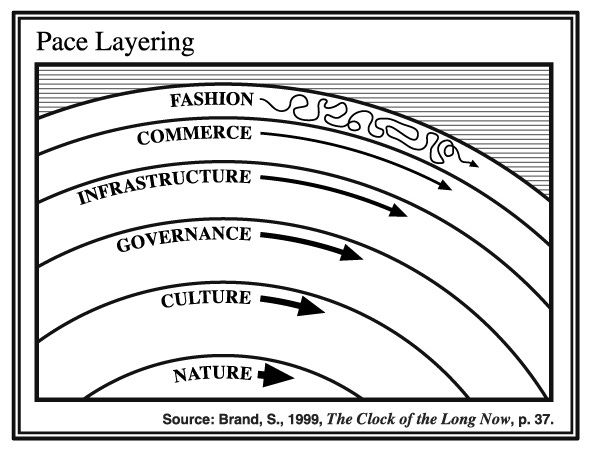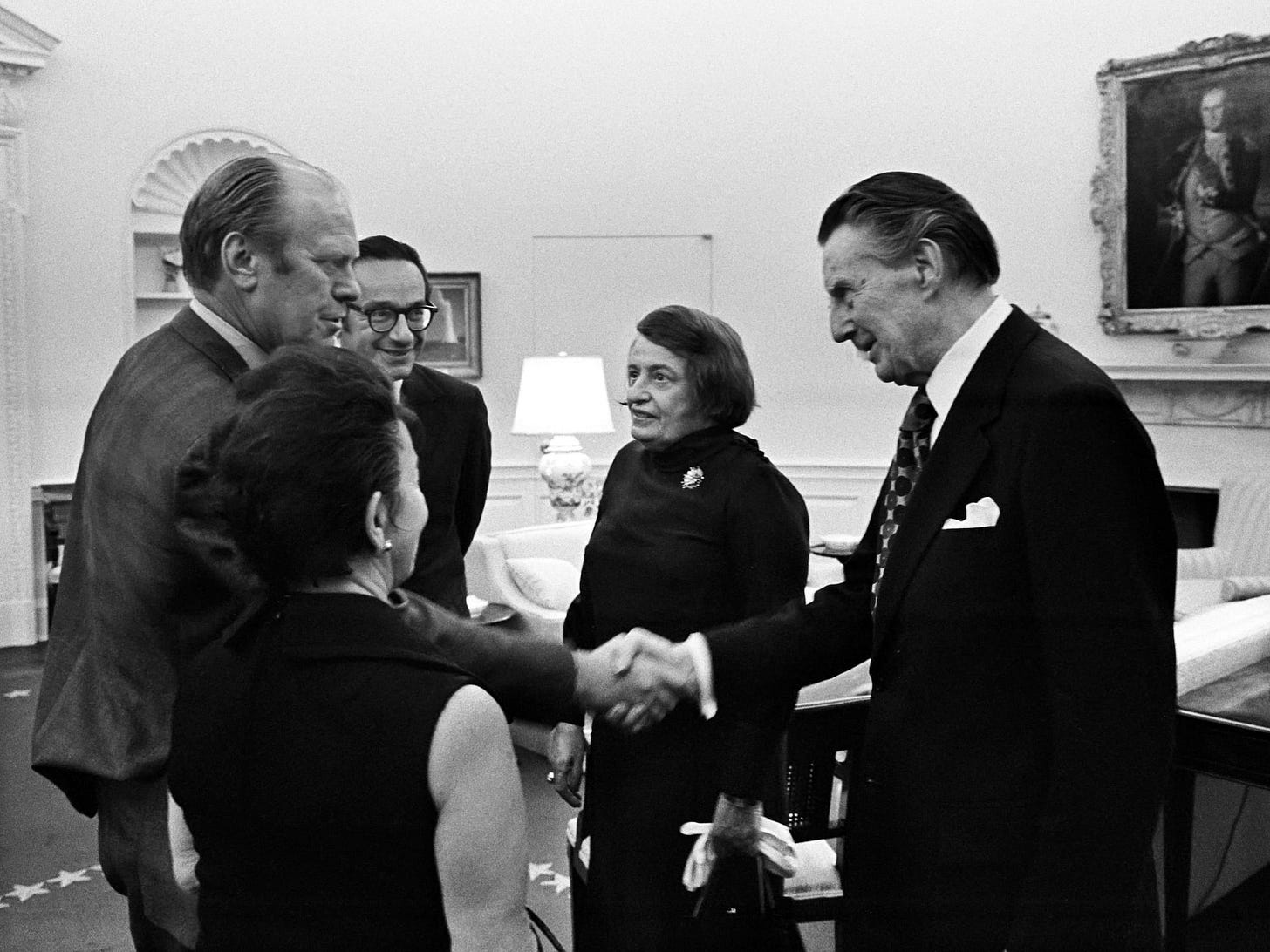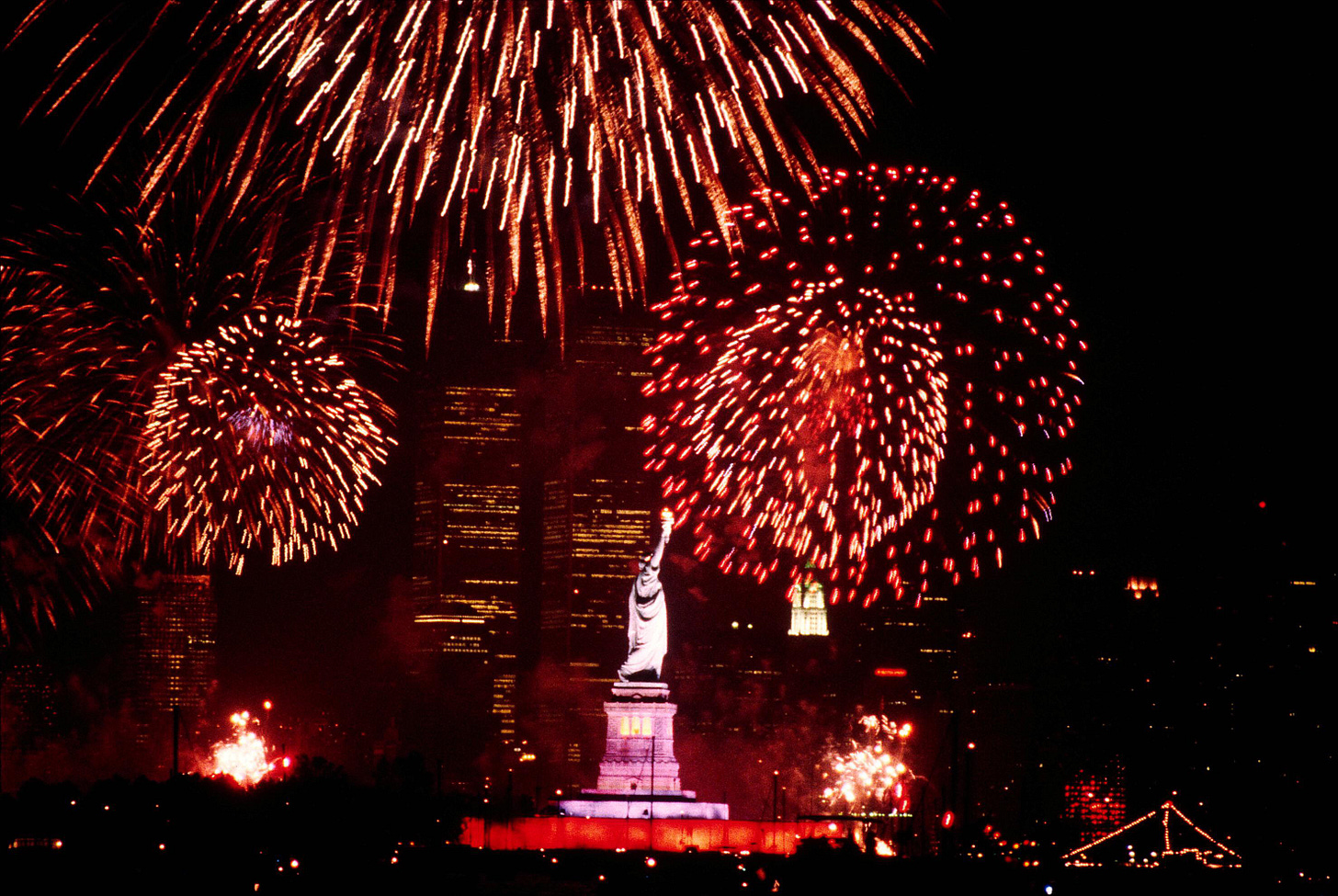We aren’t political ENOUGH.
Introduction
When people believe they are being political today, it’s generally a perverse tribalism. Resembling their treatment of all popular media — they are, more or less, fans of these characters or para-social enemies.
It is not a critical approach towards values, policy, nor the subsequent consequences of these artifacts. We experience our political landscape through the veneer of our “discourse interfaces” (that’s a Reggie phrase).
As Sherry Turkle says, we take things at interface value. And this has reshaped the modern discourse structure. In fact, the structure is as fluid as our ability to generate new symbolic language. Which is to say that the meme determines the speed. And speed determines scale*.
“The fast shall inherit the earth.” This was previously printed in the Facebook internal book they’d give new employees. Now we can read it as “the fast will catch Elon’s attention, which will influence an army of fans to mimetically adopt the message.” Unfortunately that’s not as catchy.
*see the grassroots Luigi Mangione meme campaign
The Cultural Problem
As Governance is downstream of Culture, I think it’s important (and obvious) to recognize the way we talk about politics is in fact a cultural issue. One that has been in semantic slide for quite some time. We not only need to increase the amount of ideas that we have today to fix our culture, but we have to be brave enough to challenge underlying ideas that have remained the basis of our policies for decades.
“The culture” as a phrase, has been unfortunately hijacked by the artistic class to mean the byproducts of their creativity. But this is an incomplete picture of our culture. Culture is the difference between car-centricity and walkable neighborhoods. Culture is the values we place on our food system. Culture is the quality of our public goods and the cleanliness of our streets. Culture is if we believe tomorrow is going to be better than yesterday.
When Culture gets hijacked by the artistic class, you might ask what the problem is with that? Is culture not determined by the artisans? The writers? The musicians that fill the acoustic space of the land and space between our ears?
In the documentary “Hypernormalisation” by Adam Curtis, in the first 10 minutes he talks about the political situation of NYC in 1975. New York’s debt is exploding and the primary financial committee get’s taken over by the bankers that were previously buying the bonds the city was issuing. And yet the artistic class, embodied by Patti Smith in the documentary, embraces a new sort of individualism. A “cool detachment” as Adam Curtis says, a reversal of their political style of the 60’s. Instead they view the political and social turmoil as something simply to experience and use as input for their art.
They believed, that instead of trying to change the world outside. The new radicalism should try to change what was inside people’s heads. And the way to do this, was through self-expression. Not collective action.
— Hypernormalisation
This idea clearly spread and maintained to the present day. Where putting a graphic on a hat or shirt is “impacting the culture”. And one’s ability to navigate the cycles of consumerism, becomes the measure of their cultural effectiveness. At best the graphic may be symbolic to some other cause, a derivative of past cultural production.
There’s a joke around “the best minds of my generation were tasked with getting people to click on ads”. At least you can attribute those ads to powering free global communications, information networks, and technical research.
I’d argue that the most creative minds of my generation were told to believe that creating yet another self-satisfying project was their key to building an independent practice. There wasn’t any regard for what that practice should be geared towards affecting… independence WAS the destination. This artistic class, with a vice grip on The Culture, constantly preached a doctrine of the self, and then wondered how loneliness became an epidemic.
But even more importantly, it became the center point of an entire political team. Virtue signaling. Being on the right side of history. This is how the social politic overwhelmed all other policy.
(We are slowly getting to the cultural problem statement…)
As I’ve said before, language shapes expectations. Expectations are how we assess whether to be satisfied or not with the state of our environment.
The artistic class, previously aligned to the 60s counter culture and organizing towards meaningful outcomes gave up that political ideal → but they did not give up their relationship to the political left.
And as their politics shifted to one of the internal, producing a new self-expression. So did the language of the political left.
There’s always two politics at play. The veneer of the politic, and the deals getting done. Politicians are happy to play with the veneer of politics and align with whomever can allow them to stay in the room → to get the real politics done.
But I believe that delta can only exist for so long. Combined with an ever democratizing discourse interface (X, formerly Twitter, primarily) we experienced one of the most polarizing elections of pure style since Kennedy vs Nixon.
Meg Thee Stallion twerking on stage for a presidential rally, while GenZ marketers try to defend Kamala as “Brat”. Compared to Trump pointing at graphs right before surviving an assassination attempt.
In America the best image wins. The President can’t be brat, and we love a survivor. It’s that simple sometimes.
The Kamala campaign was hopefully the Left’s wakeup call out of the cool detachment of the artistic class. We don’t want to just experience a decline with vibes. We want to survive the bullet, turn around, and enact something substantial.
It doesn’t matter what side you are on. There has to be an orientation towards substantiality. That is the language, and thus expectation, we need to reinforce.
And this is the problem of the artistic class politics. It oriented a culture of expectations, built around the satiation of one’s internal reality. NOT of a substantial national vision.
Why Should A Technologist Care
Let’s start with the reality that this idea of satiating the internal of an individual is also deeply embedded in the philosophy of internet technologies. That Ayn Rand was, and maintains to be, a philosophical hero that helped to invent the mythos of the self-made Silicon Valley hero that many founders strive to be.
Technologist tended to view their world as somewhat insulated, despite having mass impact on culture and society at large. But over the past decade, at minimum, there’s been far more collisions of scenes. Both production oriented and deeply intellectual.
The incoming Trump presidency shows a sort of collision that will be incredibly new. Elon Musk hanging out in Mar-a-Lago. All of the tech CEOs contributing to the inauguration in record amounts. And expansion is on the table.
Let’s look at a series of previous collisions, that got invited into the White House.
Scene: twilight, the air is cool and crisp. Alan Greenspan is seen entering an apartment building. He takes the elevator up and we see a salon of your typical New York intellectuals. In the corner you hear a Russian accent. It’s feminine no doubt, but rough and slightly peculiar. It’s Ayn Rand’s and she’s preparing to read a draft of a new chapter. The book she’s working on is called Atlas Shrugged, and it’s unclear who will publish it after the success of The Fountainhead. Alan is listening and is enthralled.
Scene: night, the air in Washington DC is classically muggy. We see Alan walking briskly. He is now the US Federal Reserve head, and he is walking into a different address. He enters 1600 Pennsylvania Avenue to meet with President Clinton. Proposing a radical alternative to the financial issue of the country. Cutting government spending to let markets transform America, instead of politics. President Clinton takes his advice, almost to Alan’s surprise. The boom began, and they believed that the computers and the complex models of the financial firms would allow the growth to continue indefinitely. Stable, infinite, progress. The New Economy.
End Scene.
(back to regular writing)
This created a whole list of ramifications that we can’t even get into right now. But the collapse that occurred through the Dot Com Bubble was not just the stock market. But also a complete shift in how we understood the nature of the internet.
We shifted from cyberpunk manifestos, to corporate networks and the commoditization of the user for economic extraction.
Cyberspace is a black hole. It absorbs energy and personality. And then represents it as an emotional spectacle. It is done by businesses that commodify human interaction and emotion. And we are getting lost in the spectacle.
— anonymous internet user
The question we should be asking ourselves today, as David Sacks and Elon get ready to walk in and out of that same address Alan Greenspan fatefully advised Clinton in… What preconceived ideas do they bring to the table? What collision train of ideas and circumstances have crafted recommendations that will influence billions in fast moving capital? What gets built in that aftermath? And what will potentially come crumbling down?
Do they have the ability to realize a unifying national vision, or will they fall prey to the cronyism critiques many already hurly their way?
The Awakening - Real Language For Real Expectations
I believe we are in the final innings of this delusion, where self-expression is the be-all-end-all. Because we’ve seen such a public failure of it, we are finally recognizing the environment we’ve silently been in. And what comes next, is the awakening.
What’s in the way of this awakening, is the tribal bubble you may find yourself in presently. We all have it somewhere in our lives.
Remaining in the context of New York, it could look like this… The Right is fear-mongering about the dangers of everyday life in the city, while the Left doesn’t want to admit that the city has gotten progressively more dangerous. The Right doesn’t want to admit that police officers aren’t doing their job, and the left doesn’t want to admit we desperately need police officers to do their job.
These tribal constructs form new teams instantaneously as an issue enters into the mainstream. Perpetually increasing the PvP dynamic at play, no matter where you find yourself. Distorting our ability to form language that creates an expectation that something real might get done.
While Adam Curtis showed us how the Artistic Class gave us the detached internal language of a radical politic. The Right has always been willing to play that same game. Appealing to the same base time and again with fear of uprising violence and insecurity. The collective inability to find productive language reeks of a type of maintenance the political class desires to keep the culture of political discussion ineffective.
It’s critical that a reversal -the awakening- comes from the bottom up. It starts with a clear and mimetic symbol. The same way that e/acc came to represent something both clear and intriguing enough to be researched further. What would it look like to create a label across discourse networks that represents this shift in language?
Conclusion - Or, Why Should A Technologist Care Pt 2
All of our emerging technologies have deep political situations.
Beyond the legal questions around copyright, Generative AI already faces questions of representation and truth. We all comically remember at the beginning of 2024 when Google’s image generator showed the founding fathers as Black. And folks threw a hissy fit. In reality, someone on the training team probably liked Hamilton a little too much. But here are some others that will come up over the next few years.
Crypto is fundamentally a question of capital and governance distribution. I continually find it funny how apolitical members within the crypto community insist on being → despite the entire premise of the technology and the whitepapers that birthed them, being politically motivated.
The growth of “The Gundo” as a technology scene and the increase desire for a new defense tech class. Creating competition for the flailing Boeing’s of this world. Combined with funds like A16Z and emergent funds focused on the idea of American Dynamism / broad American interests.
Most directly the movement of pop-up cities / city founding projects. These are as bald as it gets in terms of developing a new politic through the technologist lens.
The list goes on, but the needs are shared. A cohesive value set for human flourishing. In my “New Technologist Manifesto” I shared three related points.
The new technologist cares about increases in the standard of living. We view subjects like alternative food production, housing production, and transportation as fundamental to our canon.
+
We do not filter our work through our identity. To filter one’s work through identity labels is to constantly be addressed through that identity, and the work never stands on its own. The new technologist avoids this path.
+
Finally, the new technologist does not limit themselves to the VC sprint arena of the past two decades. We believe that we will need to run for government offices with a platform around building products that work for constituents. We are comfortable and embrace roles in the public sector, financial industry, cultural industries, and more.
Some of the technologist building in the categories above do not have clear articulations when it comes to human flourishing. Many are willing to accelerate and find out along the way. I believe this is unacceptable.
I wrote recently in a tweet that there’s a rarity from technologist to say whether a thing is good or not. Instead they repeat that it is inevitable, and their actions show that they believe they should financially benefit from and “steer” that inevitability. That is a politically bankrupt position.
I would encourage founders currently working in these spaces, or builders thinking about these spaces, to do the work and articulate how your soon to be embodied values (ie the products created) create a path to flourishing. Otherwise you run the risk of what many builders regret → “we didn’t know it would have these consequences.”
It’s always hard writing your first piece of the year. But with the upcoming inauguration, Luigi Mangione, the ramifications of illegal immigration I see behind my home in New York, the safety of our public transportation system… I know that I am witnessing an avoidable decline. That our political expectations are embarrassingly low. And that we’ve generally lost the ability to plainly state the problems we are facing without fear of retaliation.
I am optimistic about the American future. But I want us ALL to be, and to do that we have to unravel some of the narratives that are tying us up and creating false arenas of conflict. We can do that together.
***A few notes on my personal politics
I am a registered independent, and my voting record has consistently been a split in terms of political parties I support in any given election.
The first reason I gave extra focus to the left in this essay is because they lost the election. To the loser goes the criticism, and the hope is that there’s a learning there that allows them to run a much better candidate in 2028. Although based on the scapegoating immediately after the election… I am doubtful in the short term.
The second reason I gave extra focus to the left in this essay is because of the relationship with the artistic class, which was the more important group I wanted to focus on. As a New Yorker and creative, I’ve seen how these folks articulate how they judge impact on the world and what it means for their personal production. This has to change. This group needs to orient towards something larger & the kids they inspire need to set aspirations bigger than creative directing a magazine campaign.
I acknowledge the privilege I have of not relying on government support for my basic needs, I realize that shapes my hierarchy of what I believe is important to debate.
I don’t do edits really, so excuse typos and things that don’t make sense.
Thanks so much for giving me your attention. I hope it was worth it, if not… unsubscribing will not hurt my feelings, and will give you back time you literally cannot have back.
Much love.
Live in the light







